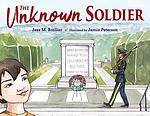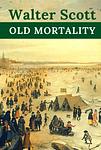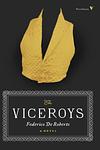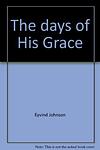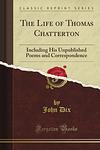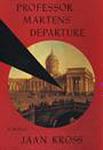The Greatest "History, Fiction" Books of All Time
Click to learn how this list is calculated.
This list represents a comprehensive and trusted collection of the greatest books. Developed through a specialized algorithm, it brings together 300 'best of' book lists to form a definitive guide to the world's most acclaimed books. For those interested in how these books are chosen, additional details can be found on the rankings page.
Genres
The category of "History" in books refers to the study and interpretation of past events, societies, and cultures. It encompasses a wide range of topics, including political, social, economic, and cultural developments, as well as the lives of individuals and groups who have shaped the course of history. History books can be written from various perspectives and may focus on specific time periods, regions, or themes. They aim to provide readers with a deeper understanding of the past and its impact on the present.
Countries
Date Range
Reading Statistics
Click the button below to see how many of these books you've read!
Download
If you're interested in downloading this list as a CSV file for use in a spreadsheet application, you can easily do so by clicking the button below. Please note that to ensure a manageable file size and faster download, the CSV will include details for only the first 500 books.
Download-
1. War and Peace by Leo Tolstoy
Set in the backdrop of the Napoleonic era, the novel presents a panorama of Russian society and its descent into the chaos of war. It follows the interconnected lives of five aristocratic families, their struggles, romances, and personal journeys through the tumultuous period of history. The narrative explores themes of love, war, and the meaning of life, as it weaves together historical events with the personal stories of its characters.
-
2. Memoirs of Hadrian by Marguerite Yourcenar
"Memoirs of Hadrian" is a historical novel that presents a fictional autobiography of the Roman Emperor Hadrian, who reigned from 117 to 138 AD. Narrated in the first person, the novel explores Hadrian's ascension to the throne, his administration, his love for the young Antinous, and his philosophical reflections on life and death. The narrative is framed as a letter to his successor, Marcus Aurelius, offering insights into the complexities of power, the nature of leadership, and the human condition.
-
3. Life and Fate by Vasily Grossman
"Life and Fate" is a sweeping epic that explores the human condition during the Siege of Stalingrad in World War II. The novel delves into the lives of a wide range of characters, from soldiers and scientists to children and victims of the Holocaust, providing a stark and unflinching portrayal of the horrors of war, the brutality of totalitarianism, and the resilience of the human spirit. At the same time, it also examines themes of love, loss, and the struggle for freedom and dignity in the face of overwhelming adversity.
-
4. Roots by Alex Haley
This groundbreaking historical novel follows several generations of an African American family, beginning with Kunta Kinte, a man captured in Gambia in the 18th century and sold into slavery in the United States. Through Kinte and his descendants, the narrative explores the brutal realities of slavery and its aftermath, the struggle for freedom and civil rights, and the perseverance of a family through immense hardship. The story is based on the author's own family history, making it a significant work in the exploration of African American heritage and identity.
-
5. Fateless by Imre Kertész
"Fateless" is a harrowing account of a Hungarian Jewish boy's experiences in Nazi concentration camps during World War II. The protagonist is sent to Auschwitz, then Buchenwald, and finally to a factory in Zeitz, enduring brutal conditions and witnessing unimaginable horrors. Despite his experiences, he maintains a detached, almost indifferent perspective, focusing on the mundane aspects of life in the camps, which further highlights the absurdity and horror of the situation. The novel explores themes of identity, survival, and the arbitrary nature of fate.
-
6. The Lusiad by Luís Vaz Camões
"The Lusiad" is an epic poem that chronicles the historic voyage of Vasco da Gama, who discovered a sea route from Portugal to India in 1497-1498. The narrative is filled with both historical events and fantastical elements, including sea monsters and divine intervention. The story celebrates Portugal's maritime exploration and its heroes, while also reflecting on the human condition and the nature of life, destiny, and the cosmos.
-
7. Kolyma Stories by Varlam Shalamov
"Kolyma Stories" is a collection of short stories that vividly depict the harrowing experiences of prisoners in the Soviet Gulag during the Stalinist era. Written by Varlam Shalamov, a survivor of the Kolyma labor camps himself, the book offers a raw and unflinching portrayal of the inhumane conditions, extreme suffering, and moral degradation endured by the prisoners. Through his powerful and haunting narratives, Shalamov sheds light on the resilience of the human spirit and the indomitable will to survive amidst unimaginable cruelty.
-
8. Andersonville by MacKinlay Kantor
"Andersonville" is a historical novel set during the American Civil War, focusing on the Confederate prisoner-of-war camp, Andersonville prison. The narrative vividly portrays the horrific conditions and experiences of the Union soldiers held captive there. It delves into the lives of the prisoners, their captors, and the surrounding civilian population, providing a comprehensive and brutal depiction of one of the most notorious chapters in American history.
-
9. The Unknown Soldier by Väinö Linna
The Unknown Soldier is a profound narrative of the Continuation War between Finland and the Soviet Union during World War II. The story follows a machine gun company from diverse backgrounds and social classes, portraying their experiences, camaraderie, and the harsh realities of war. It offers a balanced perspective on the conflict, highlighting individual heroism, the brutality of warfare, and the mundane aspects of military life. The book is renowned for its realistic depiction of the war and its impact on the soldiers.
-
10. Émile by Jean-Jacques Rousseau
The book in question is a seminal work in the field of education and philosophy, presenting a comprehensive treatise on the nature of man and the importance of education tailored to the individual's developmental stages. The author argues for a system of education that allows for the natural development of a child's abilities and senses, advocating for learning through experience rather than traditional academic instruction. The narrative follows the growth of a fictional boy, illustrating the author's educational philosophy through his upbringing, which emphasizes moral and emotional development alongside intellectual growth. The work challenges conventional notions of education and has had a profound impact on modern educational theory.
-
11. Kaputt by Curzio Malaparte
"Kaputt" is a semi-autobiographical novel that portrays the bleak and disturbing experiences of the author during World War II. The narrative is set in Eastern Europe and offers a vivid depiction of the war's atrocities, including the Holocaust, as seen through the eyes of a war correspondent. The book is known for its surreal and grotesque imagery, combined with the author's sharp and cynical observations of the war's impact on humanity.
-
12. Jubilee by Margaret Walker
The novel is a historical epic that follows the life of Vyry, the daughter of a white plantation owner and his black mistress, through her journey from slavery to freedom during and after the Civil War. Set in the American South, it paints a vivid picture of the brutal realities of slavery and the struggle for liberation. The protagonist's resilience and determination to overcome the oppressive systems of her time are central to the narrative, which is rich with themes of family, love, and the enduring human spirit in the face of injustice. The story is a testament to the strength and endurance of African American culture and heritage, as Vyry's life reflects the broader African American experience during one of the most tumultuous periods in American history.
-
13. Old Mortality by Sir Walter Scott
Set in the 17th century during the Covenanting Rebellion in Scotland, the novel weaves a tale of adventure, romance, and political intrigue around the historical events of the time. The story follows the young hero, Henry Morton, who is caught between his loyalty to the Presbyterian Covenanters and his love for Edith Bellenden, a Royalist. As Morton becomes embroiled in the conflict, he must navigate a path through the tumultuous civil war, facing moral dilemmas and the consequences of his choices. The narrative also explores themes of honor, tradition, and the impact of history on individual lives, all while providing a rich portrayal of Scottish culture and the complexities of religious and political loyalties.
-
14. The Heptameron by Marguerite de Navarre
The book is a collection of 72 short stories presented as a frame narrative, where a group of travelers, stranded by floods at a monastery in the Pyrenees, decide to entertain themselves by each telling a story every day for ten days. The tales, which were inspired by Boccaccio's "The Decameron," explore themes of love, lust, infidelity, and the complexity of human relationships, often with a moral or religious lesson embedded within them. The stories are told by characters from different social backgrounds, providing a rich tapestry of Renaissance life and offering insight into the societal norms and gender dynamics of the time. The work is notable for its candid and sympathetic portrayal of women's experiences and its subtle critique of contemporary mores.
-
15. Death in Rome by Wolfgang Koeppen
"Death in Rome" is a post-World War II novel that explores the lives of a German family, their friends, and associates during a reunion in Rome. Each character is representative of a different aspect of German society, and their interactions and experiences in the city serve as a commentary on the nation's struggle to come to terms with its recent past. The book also explores the themes of guilt, denial, and the lingering effects of war.
-
16. The Viceroys by Federico De Roberto
"The Viceroys" is a historical novel set in 19th century Sicily, during the Italian unification. The story revolves around the aristocratic Uzeda family, who are trying to retain their power and influence in the changing political landscape. The narrative explores themes of power, corruption, and the decline of the aristocracy through the lens of this manipulative and scheming family. The book is a critique of the social and political system of the time.
-
17. Max Havelaar by Multatuli
"Max Havelaar" is a novel centered around a Dutch civil servant who is stationed in the Dutch East Indies (now Indonesia) during the mid-19th century. The protagonist, trying to battle the corruption and exploitation of the local people by Dutch colonial rulers, becomes disillusioned with the system. The novel provides a scathing critique of the colonial regime's treatment of the indigenous people, highlighting their suffering and exploitation. The author uses various narrative techniques and perspectives, making it a significant work in Dutch literature.
-
18. Here's to You, Jesusa! by Elena Poniatowska
This novel tells the story of Jesusa, a woman who experiences the Mexican Revolution, the Cristero War, and the development of the Institutional Revolutionary Party. Through her eyes, readers witness the struggles of poverty, the brutality of war, and the realities of a woman's life in early 20th century Mexico. The protagonist's life is filled with hardship, but she remains resilient, embodying the spirit of the Mexican people during a turbulent time in history.
-
19. The Days of His Grace by Eyvind Johnson
"The Days of His Grace" is a historical novel set in the 14th century, during the time of the Hundred Years' War between France and England. The narrative follows a Swedish nobleman who becomes involved in the political and religious conflicts of the era, while also dealing with his own personal struggles and relationships. The book is a complex exploration of power, faith, and the human condition, reflecting on the moral and ethical dilemmas faced by individuals in times of war and upheaval.
-
20. Chatterton by Alfred de Vigny
The book is a historical novel that delves into the life and tragic fate of Thomas Chatterton, an 18th-century English poet who was posthumously recognized for his talent. The narrative explores themes of artistic integrity, the struggle for recognition, and the impact of societal neglect on creative genius. Through the lens of Chatterton's short and tumultuous life, the novel examines the romantic ideal of the misunderstood and impoverished artist, ultimately providing a critique of the ways in which society both venerates and marginalizes its creators. The protagonist's passionate pursuit of literary authenticity and his eventual despair are depicted with a blend of empathy and melancholy, reflecting on the eternal conflict between the artist's inner world and the external realities of survival and acceptance.
-
21. The Negro Caravan: Writings by American Negroes by Sterling Allen Brown, Arthur Paul Davis, Ulysses Lee
"The Negro Caravan: Writings by American Negroes" is a comprehensive anthology that compiles the works of African American writers from the 18th century through the mid-20th century. The collection includes a broad range of genres such as essays, poetry, drama, and fiction. It provides a deep and diverse representation of African American literary and cultural history, showcasing the struggles, achievements, and contributions of Black intellectuals and artists throughout the years.
-
22. Dark symphony: Negro literature in America by James A. Emanuel (Comp), Theodore L. Gross
"Dark Symphony: Negro Literature in America" is a comprehensive anthology that explores the rich and varied African American literary tradition. Compiled by two renowned scholars, the book features a broad range of works including poetry, essays, short stories, and excerpts from novels, plays, and autobiographies. These works, which span several centuries, reflect the struggles, triumphs, and unique cultural experiences of African Americans throughout history. The anthology serves as an invaluable resource for understanding the depth and diversity of African American literature.
-
23. Professor Martens' Departure by Jaan Kross
"Professor Martens' Departure" is a historical fiction novel that chronicles the life of a real-life international law professor from Estonia. The story is set during the period of the Russian Revolution and World War I, and follows the protagonist as he navigates the political turmoil of the time. The narrative explores themes of personal integrity, professional ethics, and the struggle to maintain one's principles in the face of political pressure and personal ambition.
-
24. 1066 And All That by W.C. Sellar
The book is a satirical take on the history of England, presenting a whimsical recounting of events from Roman times through to the end of World War I, focusing particularly on the year 1066, known for the Battle of Hastings. It parodies the way history is taught, with an emphasis on memorable events, rulers, and dates, often getting facts humorously wrong or presenting them with a comical twist. The work is characterized by its irreverent tone, wordplay, and deliberate inaccuracies, lampooning both historical figures and the supposed objectivity of historians, ultimately suggesting that what is remembered from history is often a muddle of 'what you can remember' and 'what you cannot help remembering'.
-
25. Poem of the Cid by Unknown
"Poem of the Cid" is an epic poem that narrates the legendary deeds of Rodrigo Díaz de Vivar, also known as El Cid, a Castilian nobleman and military leader in medieval Spain. The story follows El Cid's exile from the court of King Alfonso VI of León and his subsequent journey to regain his honor, win back the favor of the king, and reclaim his rightful place in society. The poem is a rich tapestry of chivalry, loyalty, betrayal, and redemption, offering a vivid glimpse into the socio-political landscape of 11th-century Spain.
Reading Statistics
Click the button below to see how many of these books you've read!
Download
If you're interested in downloading this list as a CSV file for use in a spreadsheet application, you can easily do so by clicking the button below. Please note that to ensure a manageable file size and faster download, the CSV will include details for only the first 500 books.
Download







